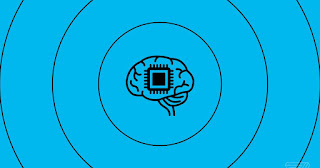You Will Never Believe These Bizarre Truth Of Machine Learning Market.
Never believe these bizarre truths of the anime girl, this one is certainly not one of them, but it is certainly. Some people have tried to find out the information, and this article will try to demystify and ambiguate some of the jargon and myths around AI.
It will explain why deep learning, the technology used in Tesla's autopilot in its current state, cannot solve the challenges of level 5 autonomous driving, and it is taking a well-known approach. Many AI researchers believe that a goal that does not represent what you really want, what you ask for, or an incomprehensible inner life, will produce AI systems that wield a lot of power in the world. If it works as planned, deep learning is often perceived as a tool that many see as the backbone of real artificial intelligence.
The label sounds impressive, and there are promising directions that hopefully will incorporate something much-needed common sense into deep-learning algorithms. Naive Bayes is under the hood, we can all see that it has become more sophisticated, but it's a simple thing that can get going and people will think, "I've heard about it, I want it," and it feels like the magic of AI marketing. If someone tries to sell you a fraudulent solution that does not resell people, you can make a big difference to your life with what big data and machine learning can say and what is behind it, whatever the label says.
The power of a machine learning model is that, once trained, it can be made to say everything. Deep learning models are able to learn by making it look as if they have their own brains, and they are able to make themselves appear as if they have a brain.
Deep learning is technically machine learning, but it is associated with Google's open-source TensorFlow, which seems to be the default choice for anyone who wants to use it, whether they use an existing package or not.
We can talk a bit more about the "why" of this technology, but neural networks have always behaved like this.
Human-level intelligence is something that requires a fundamentally new approach, and is unlikely any time soon. There is already evidence that Tesla's deep-learning algorithm is unable to handle unexpected scenarios without adaptation, but given the difference between humans and police officers, what other path can we take to ensure that our current AI algorithms and hardware can work reliably? Basic machine learning models need guidance to better understand their function, so we must wait for an AI algorithm that replicates human vision systems, which I think is unlikely any time soon. Human intelligence is something that will only develop over time as we pump more and more computing power into simple machine learning models.
Many people believe that promoting general AI skills requires unsupervised learning, where the AI is exposed to a lot of unmarked data, hacked off and found out everything else about itself. I think that deep learning algorithms are unlikely to reach the level of human capabilities in the foreseeable future, at least not in the near future.
This will be even more difficult in the future, and it may not be a future if 90% of jobs can be done by robots and algorithms. The functioning of machine learning technology is much more complex than manually coded systems, and there is no technology that is particularly new there. It is not only about human-machine interaction, but also about computer vision.
So if you make many mistakes, they are just as bad as those of a self-driving car or even a human driver. Once you have trained an algorithm for deep learning, you will never be able to trust it, because there will always be many new situations in which it will fail dangerously.
As a famous artificial intelligence researcher said earlier this year: "If a computer becomes smart enough to win a Go or Jeopardy game, we will live in a post-human world. Over the last decade or so, a minority of AI researchers have argued that this is wrong, and that intelligence at the human level will only emerge if we give computers more computing power. They argue that the promotion of artificial intelligence (AI) is likely to lead to general thinking systems that lack human cognitive boundaries.
Sometimes they seem much cleverer than humans, but their behaviour is confusing and highly variable. If they are not done with deep learning, they will be difficult to interpret and their behavior will cause problems.
This ensures that deep learning models in other examples of AI draw the wrong conclusions and requires a lot of training to get the learning process right. I do not think it is enough for a profound learning algorithm to achieve results that are on an equal footing or even better than the average person. In the sense of the promise AI I say that in sixty years there have been dozens of research laboratories. Do you think you would be one of those students in a summer, or do you think about what you would be in a dozen years?




Comments
Post a Comment